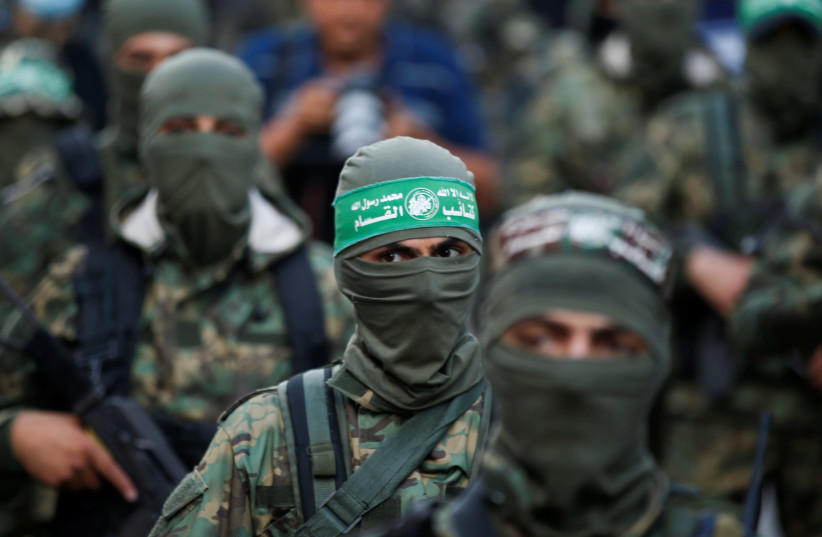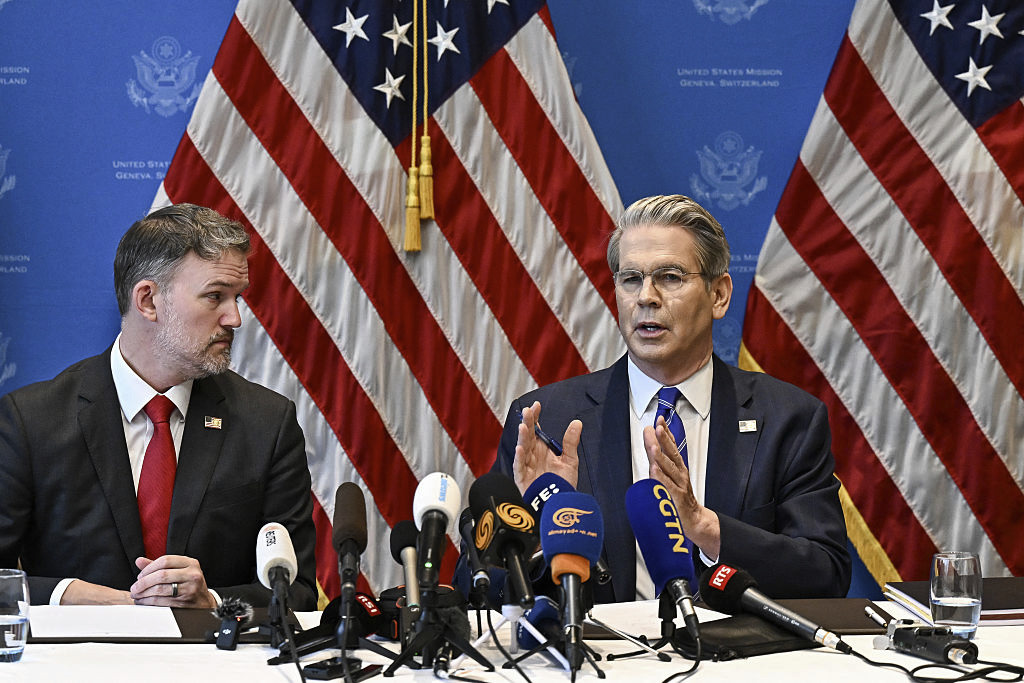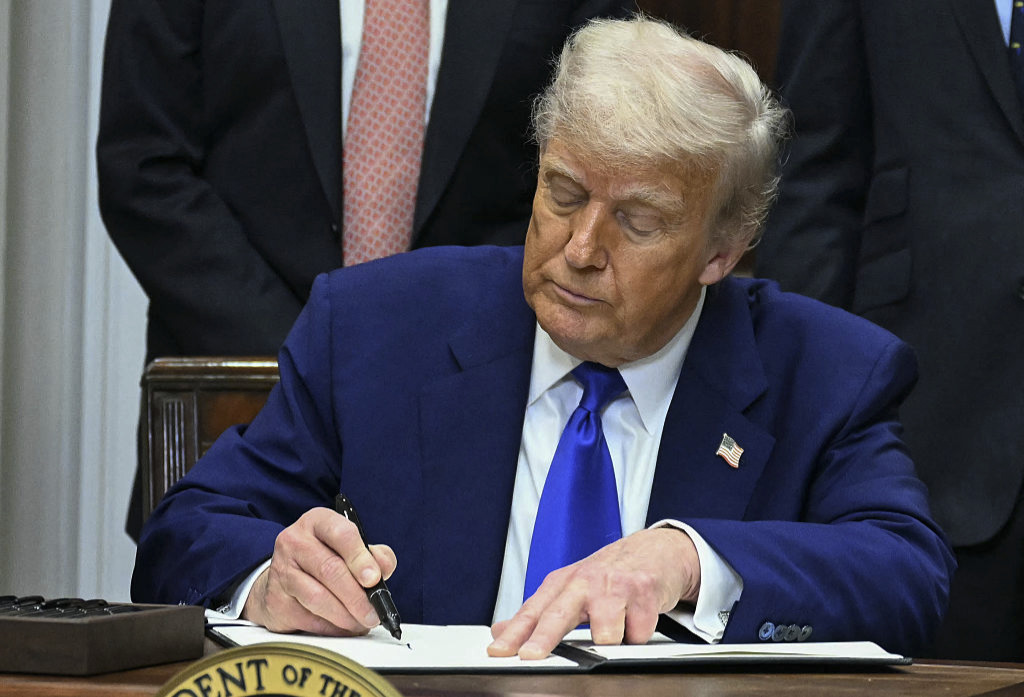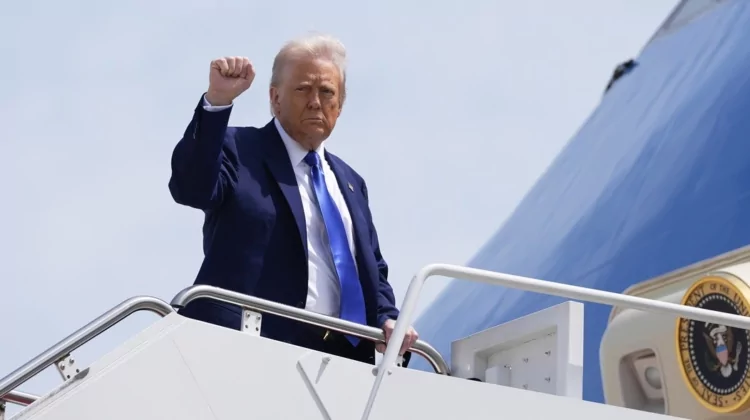by Christine Williams
While Qatar mobilizes support for Syrian President Ahmed Hussein al-Sharaa.
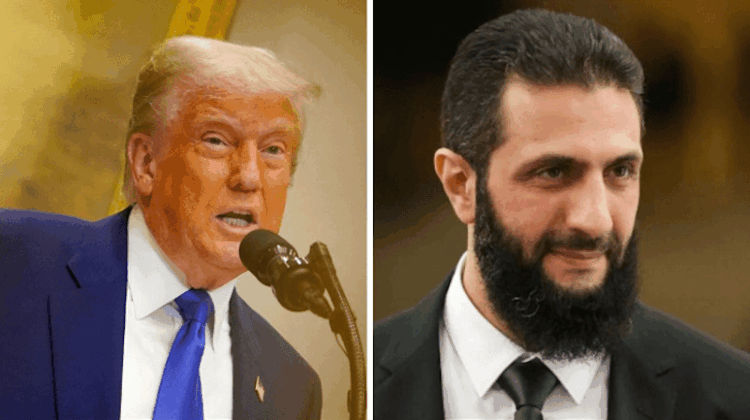
A MEMRI article entitled, “Qatar
Continues To Finance Terror With U.S. Consent: Will Fund Syria’s New
Regime, Led By HTS Terror Organization, Just As It Funded Hamas,”
examined the terrorist history of Syrian leader Abu Mohammad al-Julani,
who reverted to his original name Ahmed Hussein al-Sharaa, to create a
false impression that he had changed, even though he remains dedicated
to the jihadist cause, ie. to establish the Sharia.
Hay’at Tahrir Al-Sham (HTS) “was
established in 2012 by Al-Sharaa (then known as Al-Joulani) at the
behest of Abu Bakr Al-Baghdadi, who would soon become the founder of
ISIS. In 2013 the group became the official branch of Al-Qaeda in Syria
after Al-Joulani broke with Al-Baghdadi and swore allegiance to Al-Qaeda
leader Ayman Al-Zawahiri.”
Al-Sharaa’s followers have slaughtered Christians, Alawites and Druze since toppling Al-Assad.
The MEMRI article also
exposes the modus operandi of Qatar, “the world’s greatest financer of
extremist Islamist elements such as the Muslims Brotherhood and jihadi
terror organizations.”
Now comes a new development. “Trump to remove US sanctions on Syria
in major policy shift,” by Gram Slattery, Pesha Magid, Nafisa Eltahir
and Timour Azhari, Reuters, May 14, 2025:
RIYADH/DAMASCUS, May 13 (Reuters) – President Donald
Trump said on Tuesday he would order the lifting of sanctions on Syria
at the behest of Saudi Arabia’s crown prince, a major U.S. policy shift
ahead of an expected meeting with Syria’s Islamist President Ahmed
al-Sharaa.
Trump is set to say hello to Sharaa on Wednesday in Saudi Arabia, a
White House official said, setting up an encounter between the president
and the former al Qaeda commander who took power after Bashar al-Assad
was toppled. Two Syrian presidential sources told Reuters they would
meet on Wednesday morning.
“I will be ordering the cessation of sanctions against Syria in order
to give them a chance at greatness,” Trump told an investment forum in
Riyadh, at the start of a tour of Gulf Arab states. “It’s their time to
shine. We’re taking them all off,” Trump said, “Good luck Syria, show us
something very special.”
Trump said he made the decision after discussions with Saudi Crown
Prince Mohammed bin Salman and Turkish President Tayyip Erdogan, whose
governments have both strongly urged the lifting of sanctions.
Removing U.S. sanctions that cut Syria off from the global financial
system will clear the way for greater engagement by humanitarian
organizations working in Syria, easing foreign investment and trade as
the country rebuilds……
Recall a familiar story that backfired when America supported and
supplied Afghanistan’s mujahideen with weapons, training, and financial
resources from 1979 to 1992, to fight the Soviet invasion. The enemy of my enemy is not always a friend.
The fall of the al-Assad Syrian regime was bad news for its staunch
ally, Iran, which was good news to America and Israel. But like the
mujahideen of Afghanistan, Al-Sharaa is no friend to America and Israel,
and neither is Qatar. In December, Qatar “rushed to
position itself as a pivotal player in shaping Syria’s future” after
the fall of al-Assad. Qatar was hand in hand with “its closest regional
partner,” Turkey, which was responsible for facilitating and backing al-Sharaa before and after al-Assad’s fall.
Now al-Sharaa is making significant inroads, as his leadership is
legitimized by Muslim Brotherhood-supporting Qatar (and Turkey), with
new US support to boot.
Qatar has “considerable political influence over al-Sharaa’s
administration,” given that four key Syrian government ministers have
close ties to Qatar. Also:
Qatar’s provision of funds to the new Syrian regime to
pay public sector salaries is part of a familiar Qatari strategy: a
strategy that involves supporting and funding terrorist elements hostile
to the West in order to promote the country’s role as a provider of
international aid and as a mediator with these elements. Another
prominent example of this was Qatar’s funding of the regime of the Hamas
terrorist organization with billions of dollars.
So what is the end game for America?
One thing for certain is that Trump inherited Joe Biden’s complete
betrayal of American interests, both domestically and abroad. Biden left
open borders, poured billions into the coffers of Iran, left billions of dollars worth
of state-of-the-art military equipment in Afghanistan for free use by
the Taliban, and virtually factored America out of the equation of any
global influence. Biden left Trump to contend with a nuclear threshold
Iran and a turbulent Middle East that saw America under the declining
Biden as nothing more than a joke.
It’s also no secret that Qatar has been buying out American campuses,
where pro-Hamas, intimidating protests proliferated, with little to no
intervention by the campus administration.
The picture looks grim. But one needs to remember that Trump, not Biden, cracked down on
campus antisemitism, which was disguised as “free speech” when it was
really a promotion of jihad terror against Israel and Jews.
With many contradictions now presenting itself with Trump, how
America intends to re-establish an American influence back in the Middle
East and globally is a complicated task to say the least. It will not
be an easy or straightforward one. In the meantime, Iran is the greatest
imminent danger as the answers to many questions play out with time.
Five months ago, Iran International reported:
Amid rising tensions between Israel and Iran, Qatar has aligned itself closer to Tehran.
This was evident during Iranian President Masoud Pezeshkian’s visit to
Doha in October 2024. The two countries discussed enhancing cooperation
in economy, energy, culture, and education, with a particular focus on
resolving the $6 billion in Iranian assets frozen in Qatar. The visit
underscored Qatar’s role as a diplomatic mediator, as Pezeshkian met
with regional leaders, including Hamas representatives, to address
crises in Gaza and Lebanon.
To complicate matters even more, al-Sharaa made a strategic business pitch to Trump on Monday: “A Trump Tower in Damascus,” to “charm” him for sanctions relief, which apparently worked. And that followed a 400-million-dollar jet from Qatar to Trump, which raised eyebrows on both sides of the political spectrum.
So what’s really going on with Trump? It may be fair to present the
question: who is really manipulating whom? Other questions: what might
be the intended possible outcomes? For instance: could Trump be hoping
for a new level of the Abraham Accords to be established as he pursues
and accepts friendship from Arab countries? Could he be hoping for
greater divisions between Arab countries and Iran as a result of America
drawing closer to Arab countries? Whatever the reasons, Trump cares
little about optics, but let’s hope he has contemplated the potential
price of these new partnerships. He doesn’t seem to have mentioned
“humanitarian aid” to Syria, which would involve stuffing the coffers of
a jihadist regime that is seeking to expand Sharia dominance in the
region.
In another development; this one aimed at “strengthening strategic partnerships for economic prosperity”:
Saudi Arabia, President Donald J. Trump announced Saudi
Arabia’s $600-billion commitment to invest in the United States,
building economic ties that will endure for generations to come.
Trump also “targeted Iran in his first major speech in Saudi Arabia, warning Tehran that it must choose between never having a nuclear weapon or dealing with his wrath.” Trump warned: “If
Iran’s leadership rejects the olive branch and continues to attack
their neighbors, then we will have no choice but to inflict massive
maximum pressure.”
Of course, the cautionary tale of the mujahideen in Afghanistan
should be remembered. However, considering Trump’s past policies of
protecting American borders from the worst criminals and jihadists, as
well as his reinstatement of the travel ban on Muslim-majority countries
of concern, it makes little sense to assume without further evidence
that he would betray America to the jihadist cause. Let’s hope there is a
method (and long-term results) to the madness — as appears to
be the case even at this point. In the meantime, expect the inevitable
media circus as America continues to emerge from disastrous, nightmarish
Democrat rule.
Christine Douglass-Williams is Associate Editor of Frontpage, regular writer for
Jihad Watch, a nine-time award-winning journalist, past Canadian
government appointee to the Canadian Race Relations Foundation and the
Office of Religious Freedom; author of "The Challenge of Modernizing
Islam" and "Fired by the Canadian Government for Criticizing Islam".
Source: https://www.frontpagemag.com/trump-to-remove-us-sanctions-on-syria-in-major-policy-shift/
Follow Middle East and Terrorism on Twitter

